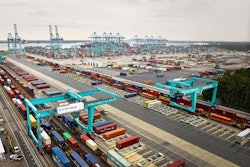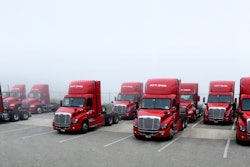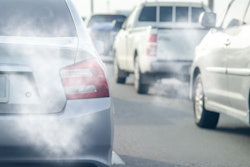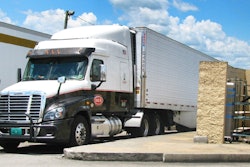Americans waste one week a year sitting in congestion, according to a report released Monday from INRIX, Inc., a transportation data and analytics company. The 2024 Global Traffic Scorecard identified and ranked congestion and commuting trends in nearly 1,000 cities across 37 countries. New York City (102 hours) and Chicago (102 hours), take two of the top three spots globally.
Ten U.S. cities made the Top 25 worst congested cities in the world as more employees returned to the office and leisure activity on nights and weekends increased, INRIX found.
Bob Pishue, transportation analyst at INRIX and author of the 2024 Global Traffic Scorecard, said traffic has gradually climbed toward pre-pandemic levels every year since 2020.
"While the U.S. is still behind pre-2020 levels of traffic, a pullback of remote and hybrid work models, specifically in tech-heavy areas like San Jose, San Francisco, and Seattle, brought a large jump in downtown trips, which is a good sign for metropolitan economies," he said. "The data also shows more economic activity Saturday and Sunday evenings as the downtown core returns to life."
Cost of congestion
Traffic congestion on U.S. highways tacked on a record-high $108.8 billion in cost to the trucking industry in 2022, according to the latest Cost of Congestion study published by the American Transportation Research Institute (ATRI).
This level of delay is equivalent to 435,686 truck drivers remaining idle for the entire year – an idling of 22% of all Class-A licensed commercial truck drivers – and an average cost of $7,588 for every registered combination truck, ATRI noted. Analysis also found the trucking industry wasted more than 6.4 billion gallons of diesel fuel in 2022 due to congestion, resulting in additional fuel costs of $32.1 billion.
The higher number of daily commuters heading downtown can bring economic benefits, but Pishue noted it comes with a downside.
"Traffic can be an indicator of economic boon, but ironically, it's a hamper on economies in and of itself. Each minute spent waiting in traffic results in money and productivity lost," he said.
New York City, Chicago and Los Angeles (88 hours) are the most congested cities in in the United States, according to INRIX, costing drivers $1,826 and $1,575 respectively. The country's biggest increase in traffic congestion came from 15th-ranked Denver, where residents saw a 19% increase in traffic delay compared to 2023.
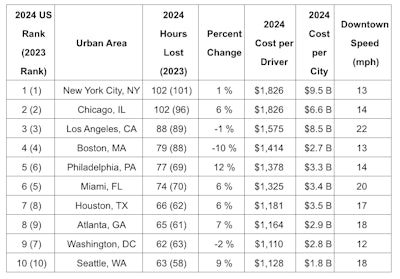
Overall, congestion resulted in drivers losing an average of 43 hours to traffic jams in 2024, equal to about one work week, costing $771 in lost time and productivity. Nationwide, this sums to more than four billion hours lost, costing $74 billion in lost time.
Downtown's revival
Nine out of 10 of the United States' largest metros saw trips increase into the city core, capped by a sharp 25% increase in trips to Downtown Houston, followed by Chicago (+13%), Dallas (+12%) and Atlanta (+10%). The INRIX analysis has pinpointed that the increase in downtown trips across the country is not only due to a return to in-person work as Saturdays and Sundays saw the largest year-over-year increases in nighttime trips to downtown (12.5% and 12.7%, respectively). These findings suggest the same improvements cities made to attract employees downtown are also responsible for driving increased leisure/entertainment activity and a return to nightlife.
Most congested corridors
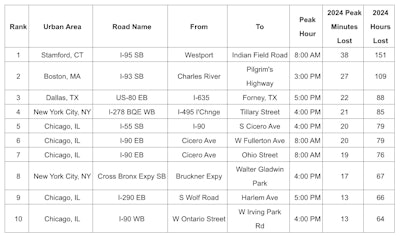
Delay on the country's busiest roads continues to be one of the most volatile traffic metrics. After holding three spots in the top 10 in 2023, Stamford, Connecticut's infamous I-95 is now number one in the country's most congested roads, seeing an influx of traffic from both commuters and freight truck drivers across the tri-state area. Roads in New York and California hold 12 of the 25 spots in INRIX's most congested U.S. corridors rankings.
Slower speeds
 For each city, TomTom calculated the average total travel time for a commuter who covered a typical 6-mile journey twice a day during morning and evening peak hours, and the total time lost over 2024 due to congestion.
For each city, TomTom calculated the average total travel time for a commuter who covered a typical 6-mile journey twice a day during morning and evening peak hours, and the total time lost over 2024 due to congestion.
New York holds several dubious positions in TomTom's rankings. New York, San Francisco, and Honolulu were the U.S. cities with the slowest average speeds. In New York (city center), a typical 6-mile trip took an average of 30 minutes (average speed: 12 mph) and up to 35 minutes in the Brooklyn area. New York is also the nation's most congested city at peak hours, with 94 hours lost due to congestion for a 6-mile return trip (+2h42 vs 2023). The state is currently less than a week into implementing a toll that is designed to decrease congestion at its worst spots – a toll the state trucking association decries as unfair.
"The combination of population and economic growth is putting significant strain on our transportation networks," said Ralf-Peter Schäfer, vice president of traffic at TomTom. "Outdated infrastructure and inefficient road planning fail to keep pace with demand. Additionally, the surge in e-commerce has led to a rise in freight traffic, further complicating the situation. Without a shift towards more regulation and sustainable transportation options, we risk worsening congestion that impacts everyone in our cities."





